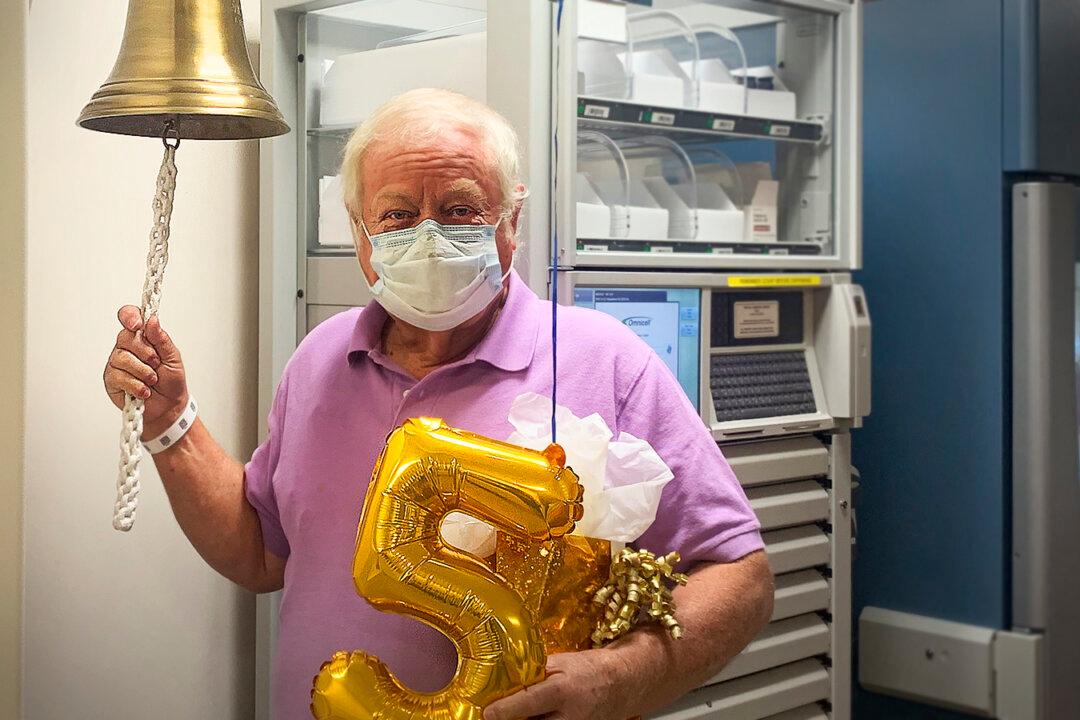This story was last updated in October 2020.
In October of 2015, North Carolina man Earl Groce was diagnosed with stage 4 pancreatic cancer. Five years later, this month, he rang the cancer ward’s victory bell to mark a survival milestone.

In October of 2015, North Carolina man Earl Groce was diagnosed with stage 4 pancreatic cancer. Five years later, this month, he rang the cancer ward’s victory bell to mark a survival milestone.